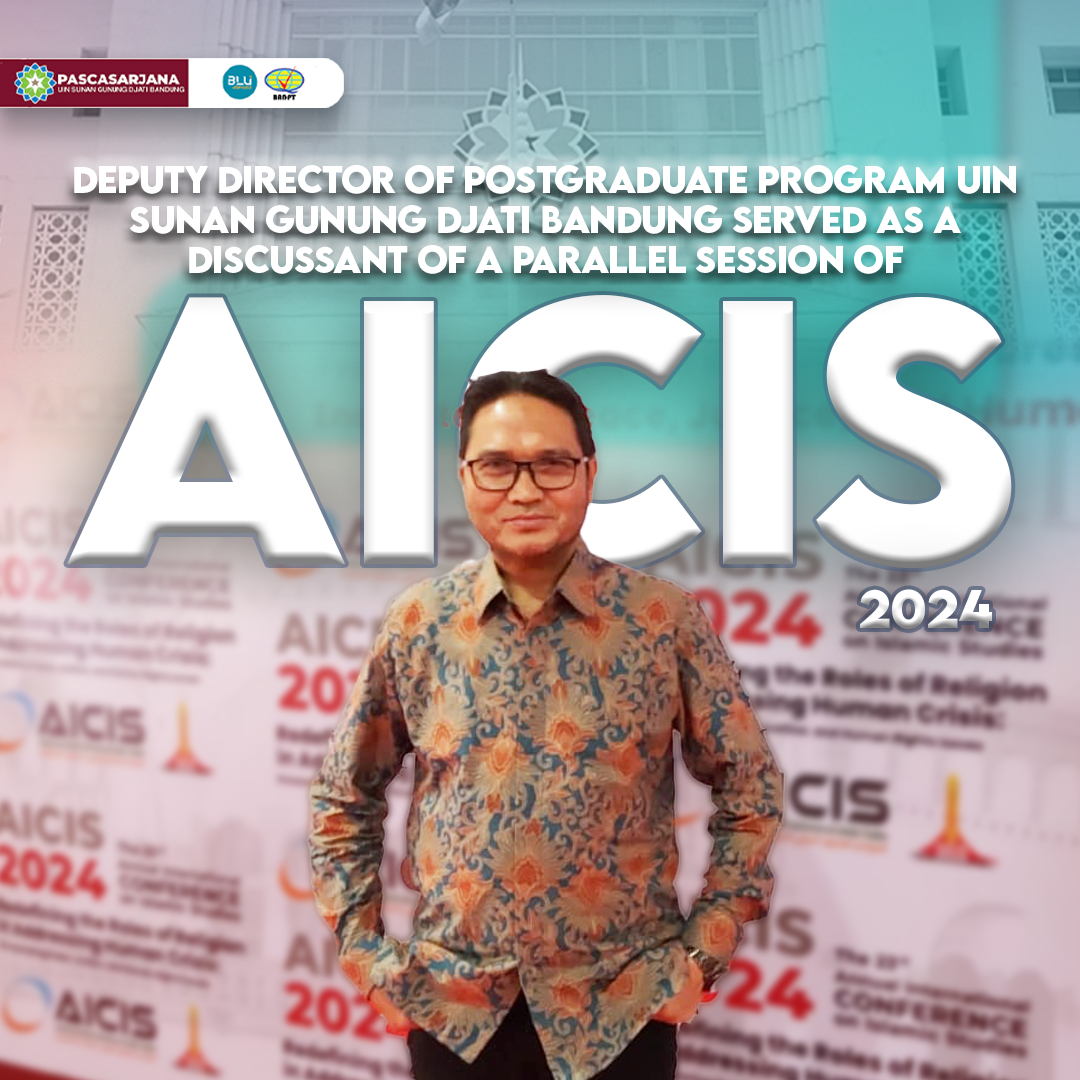
Semarang – Deputy Director of Postgraduate Program UIN Sunan Gunung Djati Bandung Prof Dr H Dindin Solahudin, MA served as a discussant of a parallel session of the Annual International Conference on Islamic Studies (AICIS) at UIN Walisongo Semarang. This panel of parallel session discussed four articles by Edi Tanadi Taufik (Univ of Edinburgh Scotland), Bibi Suprianto (UGM), M Fatah (IAIN Kudus), and Feny Nida Fitriani (IDQ Jkt).
Discussing those four articles, Prof Dindin Solahudin highlighted that wasaṭiyya (moderation) is not an Islamic teaching itself as suggested by Mohammad Hashim Kamali from the Oxford University USA. He argued that moderation is the character of all aspects of Islamic teachings since moderation is the very nature of Islam.
Prof Dindin Solahudin quoted Yusuf Qaradawi that the moderation of Islam is reflected in Islamic sharia as a whole. “Moderation constituted just and ideal Muslim people in terms of aqidah, ibadah, akhlaq, and overall attitudes,” he said.
It was emphasized as well that the commonly used phrase ‘Islam wasaṭiyyah’ could mislead to seeing moderation as simply a group, a line, or even a sect of Islamic community, just like Islam Nusantara, Islam Radikal, Islam Kiri, and so forth. Meanwhile, Prof Dindin Solahudin believes that moderation is the character of all Islamic teachings, not the character of any group.
Further, in commenting those articles under discussion, Prof Dindin Solahudin clarified that moderation does neither mean half quality. There is therefore no point for claiming moderate by being at some level between the most pious and the least one or between sharia and traditions. “Moderation means the best, the fullest, the most ideal, the most complete, the fairest, and the most upright,” he asserted.
In terms of tolerance, Prof Dindin Solahudin urges Muslim people to show sympathy or indulgence for beliefs or practices differing from or conflicting with their own. “Tolerance has to adhere to the governing principle of moderation. Such extreme expresses of tolerance as involving in other religious rites are not true tolerance,” he said.
Finally, commenting on the thoughts of the late Ahmad Syafi’i Ma’arif, as studied by Feny Nida Fitriani, Prof Dindin Solahudin promoted da’wa measures that encourage scholars, religious communities, and policy circles alike to have access to this governing principle of the moderation of religiosity. “As a social capital, moderation has been driving the umma to be active participants in building resilience of the nation,” he concluded.